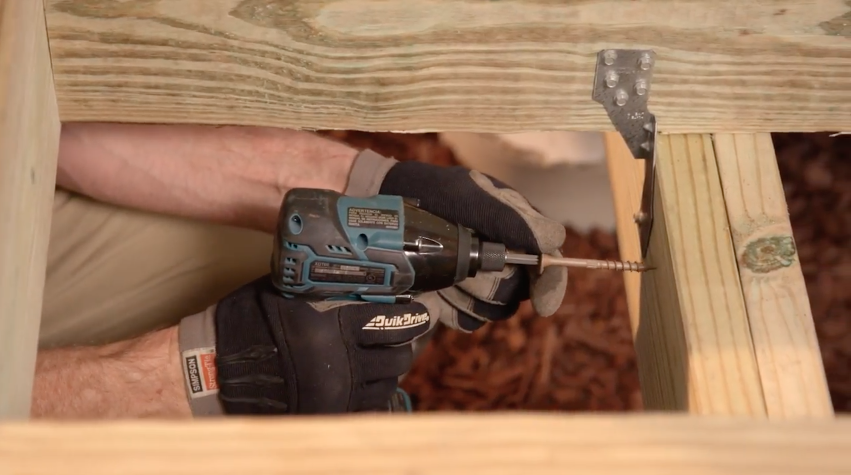The Best Way to Build a Deck is with Decking Screws

After building my first deck I was left with the question of whether to use screws or nails when build a deck. There are some pros and cons to each type of installation, so it’s good to know all the facts before making your decision. To help you make an informed decision, here’s what I found out about decking screws vs decking nails.
Why use screws instead of nails?
Since composite decking costs more than wood, many people try to save money by using wood nails instead of screws. In fact, composite boards can be damaged when nailed down. Instead of relying on what may be cost savings in materials and time, use screws that are designed for your deck’s specific material so it will last as long as possible without warping. Stairs are particularly important because they take more abuse from foot traffic.
If you have stairs, use screws to attach them to your deck. This way you won’t have to worry about stair damage caused by moisture or other factors related to wear and tear over time. You can easily remove any decking screws at any point during or after construction without causing damage if you need maintenance work done or want to change out aboard later. Decking screws also hold down rengöring komposittrall more securely than nails do and are less likely to cause warped boards over time.
Advantages of using decking screws over nails
* Decking screws are more secure and prevent decking from warping * Easily remove screws for deck maintenance without causing damage. * Decking screws hold down your deck faster than nails. * Screws can be used in treated wood but cannot be used in composite or plastic lumber. * Decking nails should not be used when using a rail on stairs. Decking Nails vs. Decking Screws: Deciding between decking screws and decking nails depends on your project’s requirements, as both materials have their pros and cons.
Generally, though, deck screws have become much more popular since they’re easier to work with than traditional deck-building nails. The most significant advantage of deck-building screws is that they provide greater strength over time by anchoring into the wood better than other fasteners. In addition, if you ever need to repair or replace any of these fasteners you don’t need to worry about splitting boards since they screw directly into them rather than pierce them as traditional deck-building nails do.

Tips on Choosing the Right Type of Screw
There are many different types of decking screws on the market. Before choosing what screws you’ll use, it’s helpful to know their strengths and weaknesses. Choosing composite decking? Composite decking screws are made from stainless steel and have high strength ratings (low fatigue resistance). You should avoid using standard galvanized or zinc-coated screws on composite decking as they will deteriorate over time. For wood decking, choose screws that match your type of wood.
For example hardwood deck screws for redwood decks; cedar decking screws for cedar decks; etc. Also, make sure that your screw length matches your deck board thickness—most wood decks require 1-1/2 inch long deck boards so use 1-1/2 inch long decking screws for best results. If you don’t want to worry about matching screw length with board thickness, consider using 2-inch long composite decking screws instead since these can be used on both thick and thin boards without stripping out.

When to Use Small Wood Screws vs Larger Lags
So you’re getting ready to build a deck, and you’re wondering what kind of fasteners are best for it. Some builders say komposittrall grå will work just fine, while others swear by larger lags. Deck screws are made specifically for decks and usually can be found at your local home improvement store. Larger lags come in different sizes and varieties and are used on many other projects.
Which one should you use? It depends on how big your deck is. Smaller decks require smaller fasteners so they won’t show up as much from a distance. Larger lags might look better but could also pull through or bend under pressure if not properly installed. If you have any doubts about whether or not your deck has been built correctly, call a professional to check it out. They can also let you know which type of fastener would work best for each individual job.
Read more: The Right Way to Install a Privacy Fence